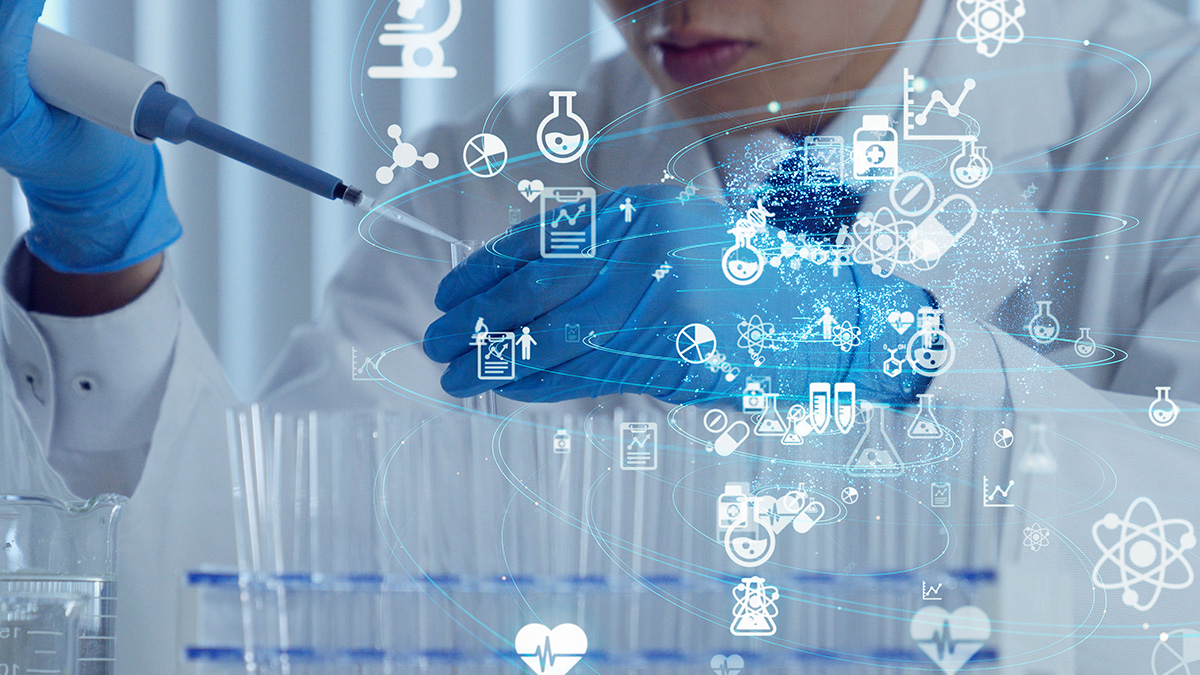AI Pushes Boundaries, Enters Realm of Health Care
GPT-4 Prompts Reimagination in Both Pharmacy Education, Practice

Dr. Michael Ellerby, PhD, is Chair and Professor of Biological and Pharmaceutical Sciences at Touro University California's College of Pharmacy.
Artificial Intelligence established foundational roles in pharmacy long before OpenAI launched the original Chat-GPT in late 2022 (1). Automated dispensing, predicting potential adverse reactions, providing consultations and monitoring adherence on telehealth platforms, using predictive analytics for inventory and supply chain management, and personalized pharmacy based on genetics and health history, have all been augmented by AI (2).
However, with the release of OpenAI's GPT-4 in early 2023 (3), it was immediately clear that GPT-4 was a wholly different kind of AI. GPT-4 provided 24/7 website access to a personal AI assistant that possessed a remarkable array of abilities.
Book Explores AI’s Potential
Within two months, the book "The AI Revolution in Medicine: GPT-4 and Beyond," described applications of an early release version of GPT-4 (3). The authors used GPT-4 to answer medically related questions, write SOAP notes, diagnose rare diseases (if provided with lab tests and clinical notes), write medically related computer code, interpret Medicare benefit letters for patients, and write after-visit summaries to patients, to name a few.
These accomplishments were extraordinary and yet also surprising, as GPT-4 was not trained to perform any of these specific tasks but instead trained on a vast corpus of open access general information from the internet. Overall, the authors found GPT-4 could be used as an intelligent and effective assistant, if supervised by a knowledgeable human, in that GPT-4 could make mistakes (not surprising given GPT-4's embryonic status as a novel form of AI).
AI Already in Use in Educational, Professional Settings
In pharmacy education, GPT-4 is already assisting faculty in writing course and lecture content, outlines, exams, problem sets, and quizzes. It can edit its own content and correct its own mistakes. It can provide full solutions to simple calculation problems (including pharmacokinetics). It can read a .pdf file of a paper and write summaries of the content. It can answer specific questions about the paper. It can re-write the content for different audiences (lay person, etc.). It can look in its database for related reference material.
This is only a brief glimpse at how GPT-4 is being used by both educators and students. Proper attribution and plagiarism remain key ethical issues that require diligent monitoring.
In pharmacy practice, GPT-4 can assist pharmacists in performing the type of tasks in common with medicine mentioned above. Additionally, an exciting development is the use of the OpenAI API (Application Programming Interface) to integrate GPT-4 into pharmacy-related software packages such as CDSS (Clinical Decision Support Systems) and PMR (Patient Medication Record systems).
Successful integration allows GPT-4 to enhance the analysis of patient data to identify potential drug interactions or adverse reactions, to find patients at high risk of non-adherence, to deliver personalized medication, dosing recommendations and patient counseling, etc. Addressing potential medication errors, and legal and ethical consequences, will be key.
Looking to Enhanced Versions of AI
Pharmacy education and practice are in the nascent stages of a revolution initiated by GPT-4. More powerful versions, more targeted versions, and more integrated versions are all rapidly being developed. With competing AI such as Google's Bard, the inventive atmosphere will drive exponential growth of applications.
This environment makes it critical to recognize and address ethical considerations, including the potential negative impact on the workforce.
----------
(1) https://openai.com/blog/chatgpt (ChatGPT can be accessed at https://openai.com).
(2). Yu K.-H., Beam A.L., Kohane I.S. “Artificial intelligence in healthcare.” Nat. Biomed. Eng. 2018;2(10):719-731. (https://drive.google.com/file/d/10U3KnmNY8lgQk3GXn14sMv7Tp4wsxk-n/view)
(3) “The AI Revolution in Medicine: GPT-4 and Beyond,” 1st edition. Published by Pearson (Aug. 16, 2023) © 2023. Peter Lee; Carey Goldberg; Isaac Kohane.
